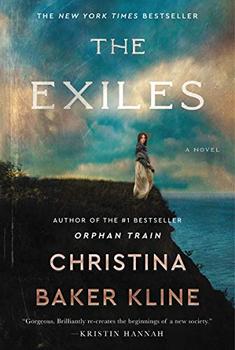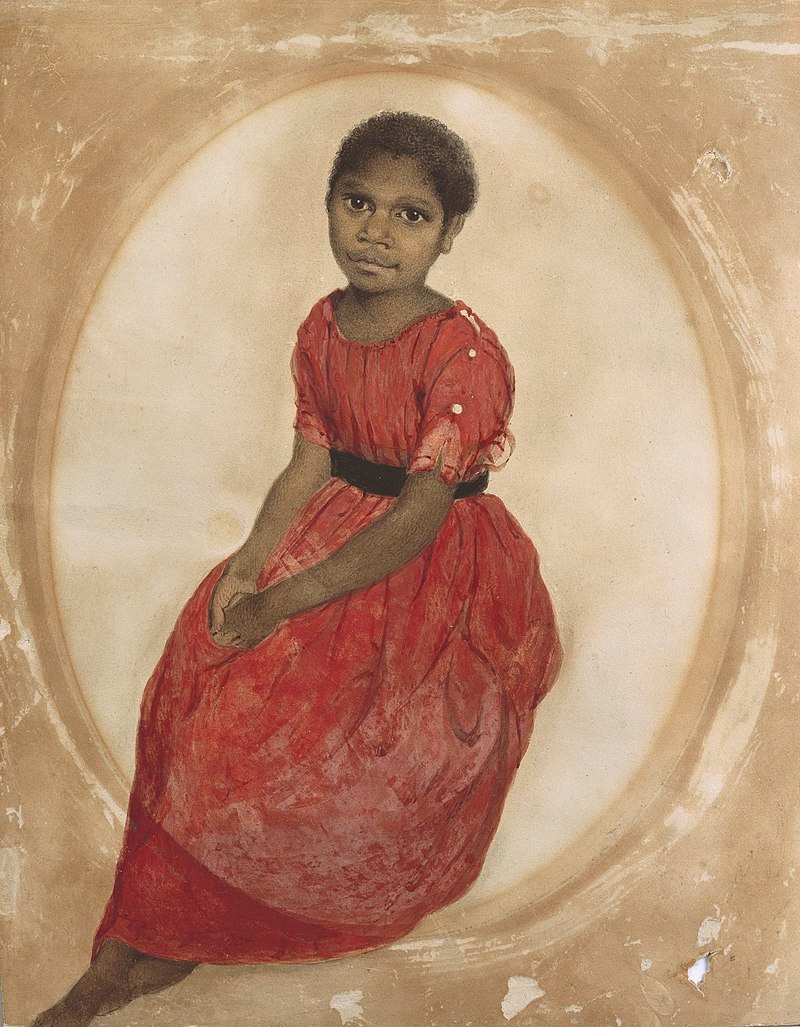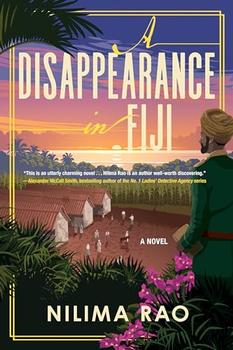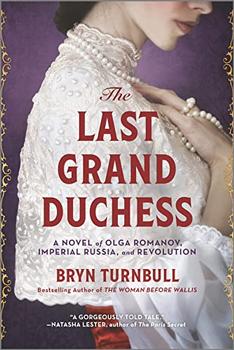Summary | Excerpt | Reading Guide | Discuss | Reviews | Beyond the book | Read-Alikes | Genres & Themes | Author Bio

The author of the #1 New York Times bestseller Orphan Train returns with an ambitious, emotionally resonant historical novel that captures the hardship, oppression, opportunity and hope of a trio of women's lives - two English convicts and an orphaned Aboriginal girl - in nineteenth-century Australia.
Seduced by her employer's son, Evangeline, a naïve young governess in early nineteenth-century London, is discharged when her pregnancy is discovered and sent to the notorious Newgate Prison. After months in the fetid, overcrowded jail, she learns she is sentenced to "the land beyond the seas," Van Diemen's Land, a penal colony in Australia. Though uncertain of what awaits, Evangeline knows one thing: the child she carries will be born on the months-long voyage to this distant land.
During the journey on a repurposed slave ship, the Medea, Evangeline strikes up a friendship with Hazel, a girl little older than her former pupils who was sentenced to seven years transport for stealing a silver spoon. Canny where Evangeline is guileless, Hazel—a skilled midwife and herbalist—is soon offering home remedies to both prisoners and sailors in return for a variety of favors.
Though Australia has been home to Aboriginal people for more than 50,000 years, the British government in the 1840s considers its fledgling colony uninhabited and unsettled, and views the natives as an unpleasant nuisance. By the time the Medea arrives, many of them have been forcibly relocated, their land seized by white colonists. One of these relocated people is Mathinna, the orphaned daughter of the Chief of the Lowreenne tribe, who has been adopted by the new governor of Van Diemen's Land.
In this gorgeous novel, Christina Baker Kline brilliantly recreates the beginnings of a new society in a beautiful and challenging land, telling the story of Australia from a fresh perspective, through the experiences of Evangeline, Hazel, and Mathinna. While life in Australia is punishing and often brutally unfair, it is also, for some, an opportunity: for redemption, for a new way of life, for unimagined freedom. Told in exquisite detail and incisive prose, The Exiles is a story of grace born from hardship, the unbreakable bonds of female friendships, and the unfettering of legacy.
Prologue
Flinders Island, Australia, 1840
By the time the rains came, Mathinna had been hiding in the bush for nearly two days. She was eight years old, and the most important thing she'd ever learned was how to disappear. Since she was old enough to walk, she'd explored every nook and crevice of Wybalenna, the remote point on Flinders Island where her people had been exiled since before she was born. She'd run along the granite ridge that extended across the tops of the hills, dug tunnels in the sugary dunes on the beach, played seek-and-find among the scrub and shrubs. She knew all the animals: the possums and wallabies and kangaroos, the pademelons that lived in the forest and only came out at night, the seals that lolled on rocks and rolled into the surf to cool off.
Three days earlier, Governor John Franklin and his wife, Lady Jane, had arrived at Wybalenna by boat, more than 250 miles from their residence on the island of Lutruwita—or Van Diemen's Land, as the white ...
Here are some of the comments posted about The Exiles in our legacy forum.
You can see the full discussion here.
'Living in a new world accords one certain freedoms. Social hierarchies are not as rigidly enforced.' Is this true for all the characters? What are the limitations of these freedoms? What does freedom mean to you today?
Freedom seems to be like being on a merry-go-round - where you stop can offer you your freedom or it can take it away. Why do we have to keep paying for that generation after generation? - dianaps
Could you identify with Evangeline? Have you ever been swept away. By circumstances beyond your control?
Definitely can identify with her. I have been in similar circumstances, I believe you trust someone until you have reason not too. She was very young and in love, there was no reason she woud have known differently. - gerryp
Did you think the timeline of the story was too compressed?
I do, I believe it made the story not flow as well as it could have. - gerryp
Do you think Hazel really could have forgiven Buck if he had let her? Do you think her actions toward him at the end of the book were justified?
I don't really even want to think about her forgiving him...Her actions were justified. - gerryp
Do you think that Mathinna had other options after leaving the orphanage for the second time? How much of the way one's life turns out is under our control, and how much is chance, in your opinion?
I did feel terrible for her, however she was so young, I don't believe she had much choice or even believed that she had a choice. - gerryp
The Exiles can't be described as a happy story, but it is inspiring and thought-provoking. Exploring historical events that may be unknown to some readers, Kline offers a unique look at the treatment of those outside of the strict rules and regulations of 19th-century British society. Furthermore, the three points of view tell three distinct stories that intertwine to create a larger picture of friendship, survival and hope. It's a fascinating tale that will appeal to readers with a taste for well-researched historical fiction and female friendships that can't be broken...continued
Full Review
 (791 words)
(791 words)
(Reviewed by Jordan Lynch).
 Paula McLain, author of The Paris Wife and Love and Ruin
Master storyteller Christina Baker Kline is at her best in this epic yet intimate tale of nineteenth-century Australia. I loved this book.
Paula McLain, author of The Paris Wife and Love and Ruin
Master storyteller Christina Baker Kline is at her best in this epic yet intimate tale of nineteenth-century Australia. I loved this book. In The Exiles, Christina Baker Kline tells the stories of three women caught up in the British colonization of Australia and the nearby islands (which today form the Commonwealth of Australia). One of these stories is that of a young Aboriginal girl named Mathinna. Although Kline has embellished on what is known about Mathinna's life to some degree, she was a real girl taken from her family to live with the governor of Tasmania John Franklin and his wife in the 1840s in the hopes that she could be "civilized." Tasmania is an island 150 miles south of mainland Australia about the size of West Virginia. It was called Van Diemen's Land at the time, after the governor-general of the Dutch East Indies Anthony van Diemen. Mathinna's forced ...
In The Exiles, Christina Baker Kline tells the stories of three women caught up in the British colonization of Australia and the nearby islands (which today form the Commonwealth of Australia). One of these stories is that of a young Aboriginal girl named Mathinna. Although Kline has embellished on what is known about Mathinna's life to some degree, she was a real girl taken from her family to live with the governor of Tasmania John Franklin and his wife in the 1840s in the hopes that she could be "civilized." Tasmania is an island 150 miles south of mainland Australia about the size of West Virginia. It was called Van Diemen's Land at the time, after the governor-general of the Dutch East Indies Anthony van Diemen. Mathinna's forced ...

If you liked The Exiles, try these:

by Nilima Rao
Published 2024
A charming and atmospheric debut mystery featuring a 25-year-old Indian police sergeant investigating a missing persons case in colonial Fiji

by Bryn Turnbull
Published 2022
This sweeping novel takes readers behind palace walls to see the end of Imperial Russia through the eyes of Olga Nikolaevna Romanov, the first daughter of the last tsar.




Second hand books are wild books...
Click Here to find out who said this, as well as discovering other famous literary quotes!